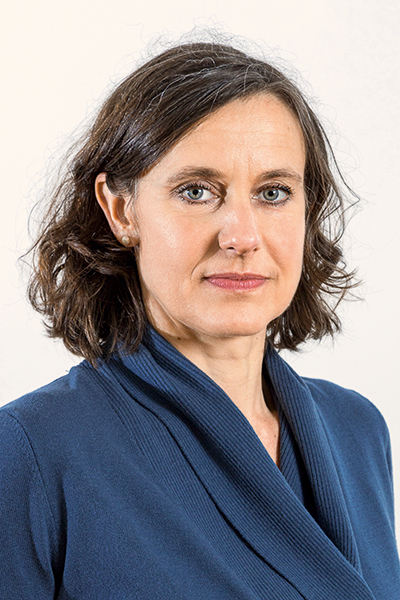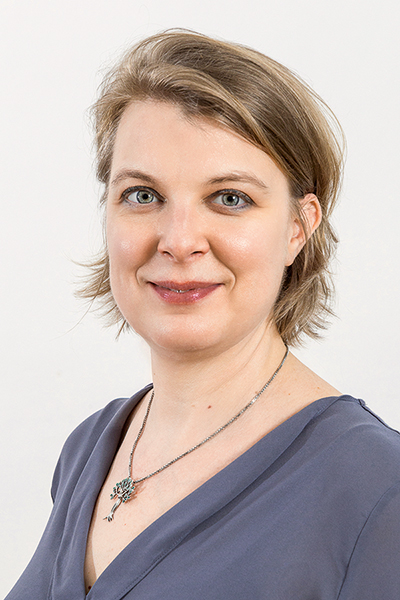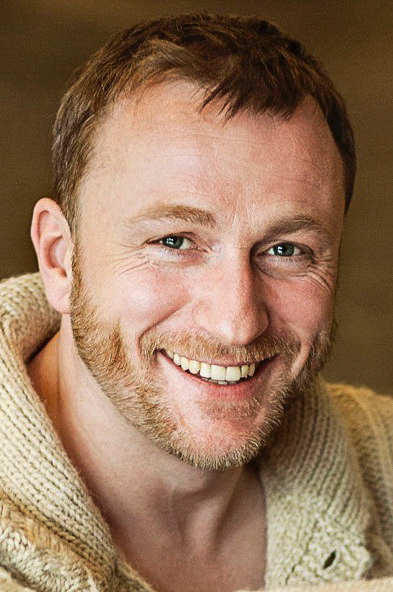Tamara Metelka, Florian Reiners, and Annett Matzke are by now a well-coordinated trio. For the past nearly one and a half years, these three have team-taught Lead Voice and Speech at the Max Reinhardt Seminar. In this interview with mdw Magazine, they provide some insights on their everyday teaching and on why Lead Voice and Speech is about far more than just speaking, and they emphasise how the human voice—just like any other instrument—requires careful handling.
At the Max Reinhardt Seminar, the obvious subject of Acting is joined by Lead Voice and Speech as a main artistic subject and thus an important part of students’ training: “Speech training is what ultimately makes the difference between a gifted layperson and a trained, professional actor,” explains Florian Reiners. This entails developing a strong, expressive voice that can project—something in which not just speaking technique itself, but also physical fitness and breathing play important roles. A further objective is to become proficient in the standard of German speech for the stage established by Theodor Siebs in 1898, which has been developed further on a continual basis ever since.
The three Lead Voice and Speech instructors plus their assistants remain a constant for the students, accompanying them throughout their studies. In the process, students experience far more than just speech instruction, for speech is always strongly linked to emotions: “The voice is a seismograph of the soul. Sometimes, certain things erupt or break open simply due to how a person is breathing, and then we have to deal with entirely different problems first,” says Annette Matzke in explanation of the psychosocial competence that’s necessary in this kind of teaching. “I even worked together with a trauma therapist for a while, because I’d had the experience that students can actually be retraumatised in the course of what they do with us. Traumatic experiences get stored in the body, and changes to breathing can call them back up to the surface. But there are simple methods one can use in order to interrupt this process,” adds Tamara Metelka. The voice—and this is often something that young actors initially don’t understand—is an instrument that needs to be learned, taken care of, and trained. “Everything that goes on in everyday life is fairly ill-suited to the stage, because it takes place in an entirely different language. So I often tell my students that it’s like learning a foreign language,” says Metelka. “Our work focuses on breathing, breathing for speech, and conveying to our students an understanding of speech as a medium by which their thoughts and their acting are transported,” elaborates Reiners.

The first, second, third, and fourth-year groups are taught separately in order to work semester-wise through additional focuses that, thoroughly in the spirit of Max Reinhardt, provide them with the broadest possible practical training. Annett Matzke concentrates with fourth-semester students on the so-called Kraftstimme [powerful voice]. The point here is to learn how to speak loudly or even scream for a long time without damaging one’s voice: “Shouting for an extended period is very unnatural, but it’s unfortunately something that directors often ask for. So professionals need a technique that enables them do this evening after evening—always sounding as if it were spontaneous.” Reiners adds: “The good actors are the ones who’ve internalised their speaking technique and/or their awareness of what’s entailed by this technique to the point that only their personalities are perceptible.” Metelka points out that, all too often, “Intensity is mistaken to mean volume.” But whatever the case, it’s essential is to keep one’s vocal tract constantly open and to avoid seizing up: “The louder I get, the more tension my body has to manifest—but it can’t be static tension,” continues Matzke. Florian Reiners explains that “post-dramatic theatre, in particular, frequently calls for scenes with a lot of screaming. So it’s absolutely essential that actors’ body-voice training and/or Kraftstimme technique be up to this; otherwise, they won’t be able to hold their own professionally.”
With fifth-semester students, Tamara Metelka puts an emphasis on spaces: “I try to create a strong awareness of space. Of the space within which I’m actually acting at any one moment, and of just what an enlargement of this space outward from the body or back into the body would mean; these are questions that we pursue using clearly structured exercises. The students have to be capable of acting out what they want to present in any space—regardless of whether it’s a small basement stage or the gigantic Burgtheater—such that it immediately reaches the audience.” Physical, representational, and vocal presence are essential for this, and they all influence each other. “One has to find the appropriate basic tension for every role and every emotional state”, continues Metelka. Syllabic elasticity is also an important theme in teaching, because speech needs to be consistently lively. “Speech isn’t a long, calm river; it’s a bubbling mountain brook. The ultimate goal is to experience highly authentic speech,” she says in explanation of the underlying principle.

When we speak in real life, we automatically call up emotions, images, memories, and/or associations. And to enable the actors to accomplish this quickly in their roles, as well, Florian Reiners emphasises text-based work with sixth-semester students: “For working on texts, I’ve developed a technique that helps students with the lightning-fast generation of images that they can call up in a way that’s appropriate to their roles. This work leads to an authentic way of speaking and can be used both onstage and on camera; I’ve observed that the acting market is requiring our students to get used to on-camera work earlier and earlier in their careers.” Ultimately, the students’ speech acquires the sort of liveliness that’s absolutely necessary for professionals.
Individual instruction, individual instruction in groups, and group instruction alternate with one another. Particularly beginning students, Metelka is convinced, get a lot out of being able to listen to and evaluate their peers: “It’s been my experience that people learn significantly more in small groups because they can recognise speech patterns in their colleagues and easily compare themselves to them.”
Another special feature of this form of training is that Lead Voice and Speech instruction also involves the Max Reinhardt Seminar’s directing students. They not only improve their own speech-related skills, but are also better able to evaluate situations and take action when speech-related changes are necessary in their work together with actors later on.

As individual as every voice is, so is every biography—for which reason the latter aspect is also addressed while training and accompanying each individual student. “Our mission is to have the students find their own personal voices and retain their own timbres even when they switch to stage pronunciation, because the voice is always one’s calling card as an actor—as is, ultimately, one’s training at the Max Reinhardt Seminar,” says Reiners. And dialect-related skills should by all means be retained: “Speech, after all, is a piece of one’s biography and part of one’s own roots. So stage pronunciation absolutely shouldn’t interfere with the ability to use language individually,” says Matzke.
Above and beyond teaching, the speech instructors accompany the students on university and outside productions as well as to their final-year round of auditions for theatre ensembles, and they’re always available for consultation regarding specific projects. And ultimately, it’s not just at graduating students’ final presentations that these instructors experience success, but also “in lessons, when students realise just how deep language can go”, Metelka remarks. Reiners adds: “Words have their own power and energy. So another thing students learn here is that they have a certain responsibility for the spoken word. In the end, when they’re standing on stage to recite texts and act in productions, we want them to stand behind their performances and not simply be speech robots.” Speech for the stage is constantly developing and changing, and speaking is something that actors do for their entire professional lives—in which continual practice and cultivation of the speaking techniques one’s learned is then up to each individual. “What gets played on their instruments—whether it’s Mozart or a punk concert—is the students’ own decision, but after they’ve trained with us, they’re capable of working in all kinds of different acting and speaking styles,” concludes Reiners.

